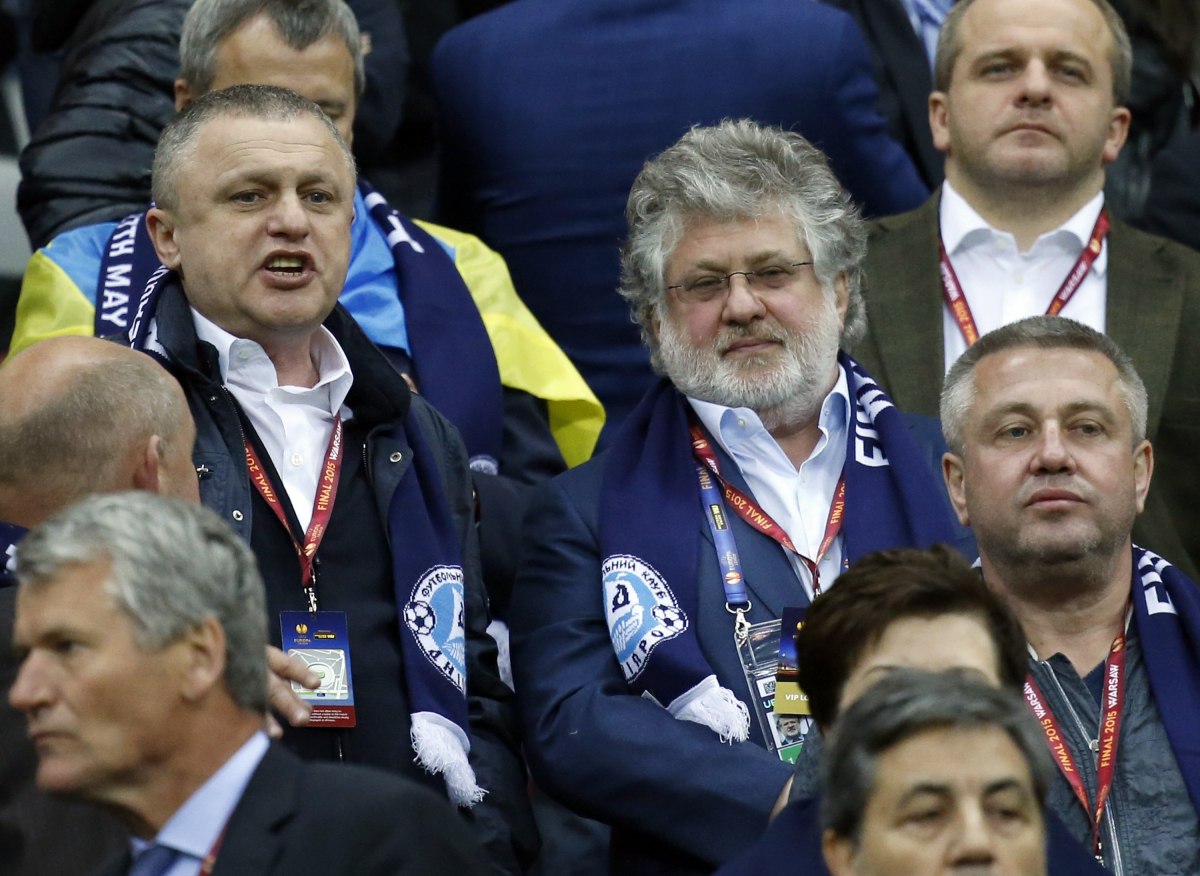The Grand Chamber of the Supreme Court of Ukraine on Jan. 31 started a substantive trial on a cassation appeal to overturn a lower court decision ruling that state-owned PrivatBank must pay back deposits to the families of Ihor and Hryhoriy Surkis, the powerful businessmen and partners of the bank’s scandalous former co-owner, oligarch Ihor Kolomoisky.
The appeal was submitted by the National Bank of Ukraine (NBU), the Finance Ministry, other state bodies and the current management of PrivatBank. Ukrainian authorities nationalized the bank in 2016 after a $5.5 billion hole was discovered in its ledgers.
All eyes were on the Jan. 31 hearing. It was supposed to determine whether the Surkis family members were wrongfully deemed insiders and had their deposits, which exceeded $40 million, confiscated after PrivatBank’s nationalization.
That ruling would set a key precedent for other cases in the PrivatBank saga, which is viewed in the West as a test for Ukraine’s battle against corruption.
Now, however, the wait will continue: On Jan. 31, the Supreme Court delayed the hearing for an indefinite period.
Critical case
In the PrivatBank saga, the bank’s former owners are trying to regain control of the financial institution, which they say was nationalized illegally. Meanwhile, the bank’s new management is suing them for allegedly stealing the $5.5 billion before nationalization.
If the Surkis family wins the case, it will create a precedent that may be used in 45 separate lawsuits by other depositors who were counted as PrivatBank insiders and had their deposits confiscated. They are suing PrivatBank for a total of Hr 29 billion ($1.16 billion).
The case is important for one more reason. Two lawsuits by Kolomoisky challenging the nationalization of PrivatBank were recently put on hold in two different courts in Kyiv. Both judges said they wanted to wait until the Supreme Court ruled on the Surkis case.
Despite the Supreme Court’s decision to delay the case, the state and PrivatBank had a minor victory.
The quorum of 15 judges decided to approve the petition of the Cabinet of Ministers of Ukraine to replace the Ministry of Finance as a co-defendant in this case. In September 2019, the government took over control of PrivatBank from the Ministry of Finance. Hence, the Cabinet, as the new owner, wanted to take part in the proceedings.
“The Cabinet of Ministers argued that it is now an owner of PrivatBank and all the responsibility is on it to comply with the results of this court ruling,” said Viktor Hryhorchuk, the lawyer representing the National Bank of Ukraine.
This is something everyone on PrivatBank’s side was hoping for: They believe the Cabinet will add weight to their case.

(L) Ihor Surkis, the President of Dinamo football club, and (R) Ihor Kolomoisky, a former PrivatBank’s owner, are watching a football game in Warsaw, Poland, on May 27 in 2015. (UNIAN)
Surkis saga
Ihor and Hryhoriy Surkis and their family members used to hold deposits of Hr 1 billion ($39.9 million), $265,000 and €7,800 in PrivatBank. Following the 2016 nationalization, the Surkis family’s savings were converted into the bank’s capital. This came after the NBU recognized the pair as associates of Kolomoisky.
Ihor Surkis is a business partner of Kolomoisky and holds shares in his businesses, including the 1+1 media group.
The state nationalized PrivatBank under a bail-in procedure, so the funds of Kolomoisky associates like the Surkises became the bank’s shares or capital.
A victory by the Surkis family would mean the state would have to return their money. It would also set a precedent for other associated persons whose investments in PrivatBank — a total of Hr 29 billion — were also taken away.
The Surkis family is not the only set of Kolomoisky associates suing PrivatBank to return the money they lost due to the bank’s nationalization. Since mid-December, 45 individuals and companies have started filing lawsuits to various courts around Ukraine in order to get their deposits refunded. Such claims have even been filed outside Ukraine.
The Surkises demand that the Supreme Court void the bail-in procedure. If it does so, all the rest of Kolomoisky’s associates and deposit holders would be able to push forward with a joint claim they have filed in London.
In 2017, Madison Pacific Trust Limited, a trustee of deposit holders launched a lawsuit against PrivatBank in the London Court of International Arbitration (LCIA). The Kolomoisky associates want the court to recognize the bail-in nationalization as illegitimate and force PrivatBank to return their investments.
Before 2016, the Kolomoisky-owned PrivatBank issued eurobonds or debt securities through UK SPV Credit Finance PLC, a London-based company deliberately created for this purpose. The Surkis brothers and many other Kolomoisky associates invested in it.
The London court is currently waiting for a decision of the Supreme Court in Ukraine.
